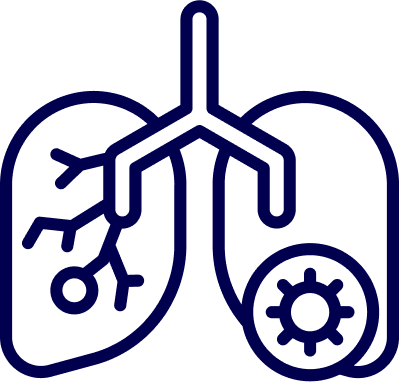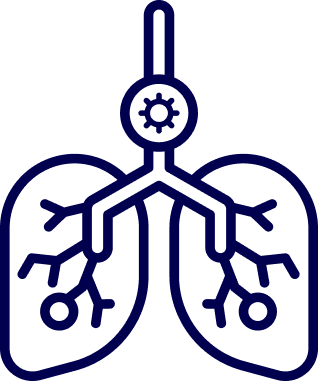RSV is a gift you can’t return
What is RSV?
RSV (a.k.a. respiratory syncytial virus) is a common respiratory virus that causes a predictable annual epidemic, which usually lasts from the fall to the early spring.
Being infected with RSV does not offer long-term protection, and people can get reinfected.
Although RSV generally causes a mild illness, infection with the virus can be more serious, particularly for at-risk populations such as babies and older adults. In some cases, RSV requires hospitalization or, more rarely, admission to the intensive care unit (ICU).


The gift that keeps on giving:
RSV is very contagious
RSV is very contagious. Like other common respiratory viruses, RSV is transmitted through the droplets produced when an infected person coughs or sneezes.
RSV spreads through contact with these respiratory droplets—either by being close to someone who is sick and coughs or sneezes or by touching a surface that has been touched by an infected person.
Every year, thousands of Canadians are hospitalized due to RSV


What are the risks of RSV?
Someone with severe RSV may need to be cared for in the hospital.
RSV can spread to the lower respiratory tract and cause infections in the lungs, which can be serious, particularly for young babies and older adults, as well as for people who are immunocompromised or have a chronic heart or lung condition.


There may also be a link between a severe RSV infection in infancy and the chance of developing asthma later in life.





